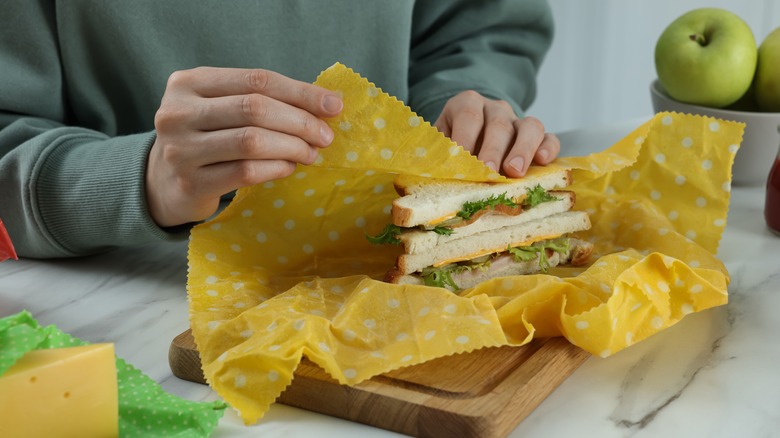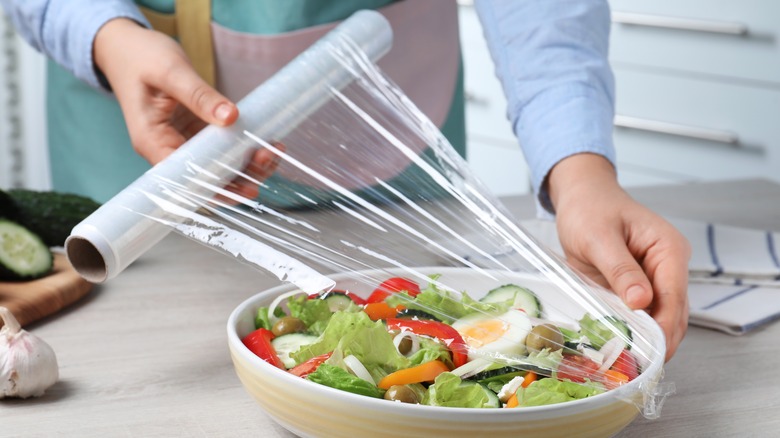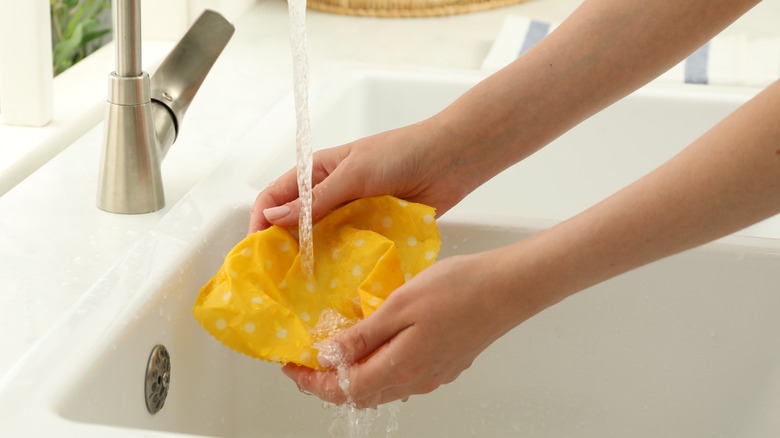Is Beeswax Wrap A Good Substitute For Plastic Wrap?
For anyone looking to quit using plastic wrap, there are plenty of alternatives available these days. Reusable boxes and bags, food huggers, and plastic wrapping that is entirely edible, are all great options, but when it comes to a simple substitute for plastic wrap, beeswax wraps are among the most versatile solutions.
Made from organic cotton cloths that have been coated in a layer of bee's wax mixed with plant oil and tree resin, beeswax wraps come in thin, malleable sheets, which can be shaped to fit securely around individual food products, such as a piece of fruit or a sandwich, or act as a covering for lidless bowls and dishes. In this way, beeswax wraps protect food from contaminants in your kitchen or out in the world just as plastic wrap would, but with natural, biodegradable materials. While beeswax wraps require a little more effort than plastic wrap because they must be cleaned after use, rather than being thrown in the trash, they are an easy and eco-friendly essential for those who cook at home often.
Why you should substitute beeswax wraps for plastic
If you are wondering why you should even consider switching out your usual plastic wrap for beeswax wraps, it's important to understand the effects of plastic on our planet and our bodies. The world produces about 400 million tons of plastic waste annually, and only a small percentage of this is recycled, resulting in carbon emissions that pollute our air, and materials that pollute our land and waterways. From an environmental standpoint, using beeswax wraps is a quick way to cut some single-use plastics out of your daily life.
In addition to helping take care of our natural surroundings, beeswax wraps can help us take care of our own health. A 2021 study in Environmental Nanotechnology, Monitoring & Management explains that ingesting microplastics that derive from plastic food packaging like plastic wrap, which is made with polyvinyl chloride, can pose a threat to human health, including potential inflammatory, immune, and metabolic disorders.
Easing the transition from plastic to beeswax
One of the primary barriers to making the transition to using beeswax wraps in place of plastic wrap may be the difference in price. While a roll of plastic wrap generally costs a few dollars, a single large wrap or a set of small wraps can cost around 15 dollars. With time, though, you will find that the investment is well worth it. As a benefit, you will never again have to worry about running out of wrapping material when you really need it — and you likely won't need to replace your wraps with any frequency.
The other main adjustment is learning to make time to properly care for your beeswax wrap, rather than just tossing it after use as you would with plastic wrap — but that reusability is part of the benefit. To clean your beeswax wrap, rinse it with cool water and soap, then leave it out somewhere to dry. (Keep it away from the dishwasher or hot water, which can ruin the wax.) Store wraps in a cabinet or drawer where they will be safe from sources of heat or moisture.



